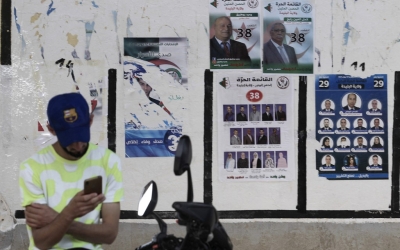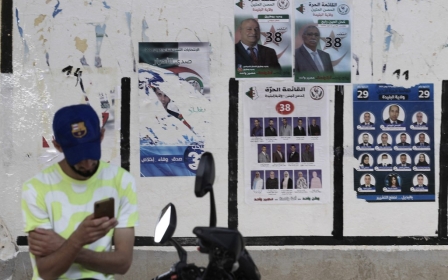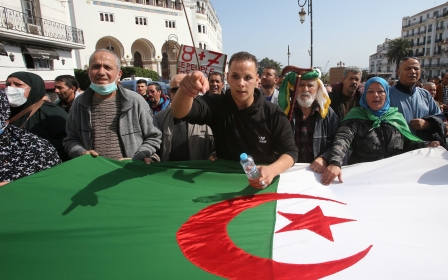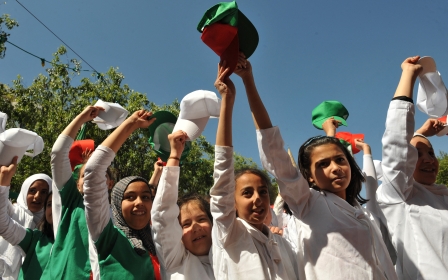Algeria arrests activists ahead of legislative elections, as police seal capital
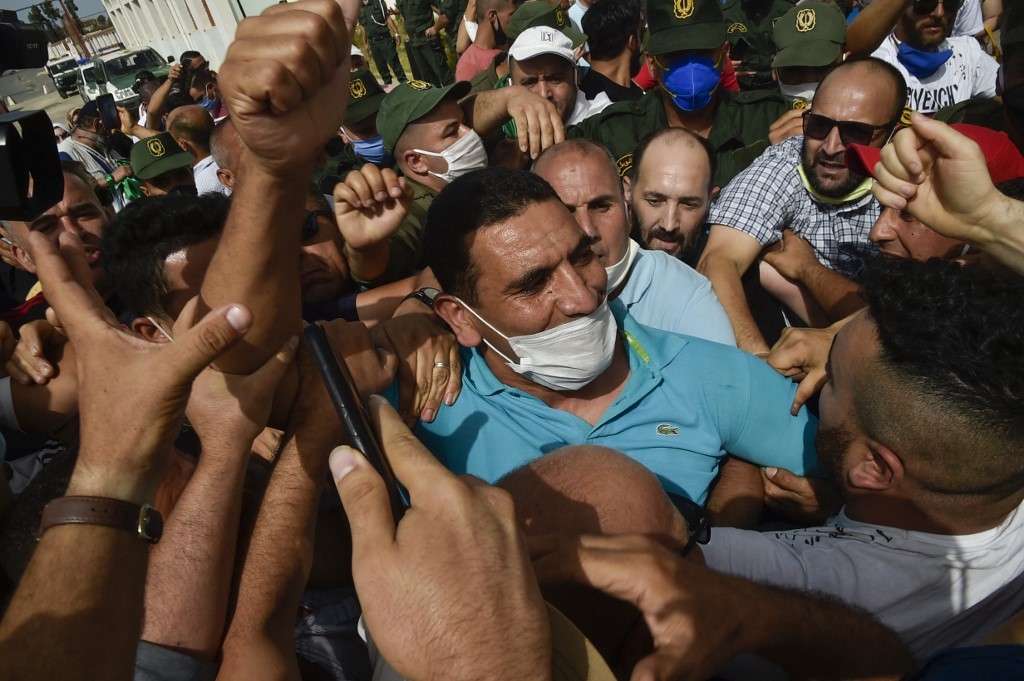
Algeria is set to hold parliamentary elections on Saturday amid protests calling for boycotts, with security forces arresting anti-government activists and sealing the capital, Algiers, on the eve of the vote.
In the past week security forces have made several arrests of anti-government activists from the Hirak movement, which helped remove longtime ruler Abdelaziz Bouteflika.
The Algerian League for the Defence of Human Rights said seven leading protest movement figures were arrested on Thursday evening, five in Algiers and two in other parts of the country.
Late on Thursday, Karim Tabbou, a leading figure in Hirak, was arrested by security forces near his home, his brother confirmed in a Facebook post.
Media figures, including Ihsane El Kadi, the director of Radio M Station, and journalist Khaled Drareni were also detained, according to local media.
Drareni's lawyer, Zoubida Assoul, said he was held in barracks on the outskirts of the capital, where he contacted his family once, at 1:30am via telephone.
Assoul added that El Kadi and Tabbou were detained in the same barracks as Drareni.
Drareni was released on bail in February, after being detained in March last year while covering the mass mobilisation of protesters across Algiers. He is expected to face a new trial.
Algerian police also sealed Algiers ahead of the vote, to prevent protesters gathering before the election. The Interior Ministry released new guidelines that require prior approval for protests. This will prove difficult for Hirak, which takes pride in being a leaderless organisation.
The latest vote comes as authorities struggle to bolster their legitimacy and stop the Hirak movement as it gains momentum across the country, after its return to the streets following a year-long gap in protests due to the coronavirus.
A presidential election 18 months ago, won by Abdelmadjid Tebboune, attracted a turnout of less than 40 percent, even according to official figures.
Tebboune's government claims to have responded to Hirak's main demands "in record time", but says they are "counter-revolutionaries" in the pay of "foreign parties" hostile to Algeria.
The protest movement believes that Tebboune's status as a former prime minister under Bouteflika dovetails into its narrative that the old guard remains unashamedly at the helm.
Last month, the International Crisis Group said Algeria had "stepped up repression" against Hirak supporters and "quashed demonstrators… arresting scores" ahead of the vote.
Independent candidates
On Tuesday, Tebboune told the High Security Council that Algerian law protected the right to vote and "criminalises any interference" with the process.
More than half of Algeria's 45 million people are eligible to vote for the 407 members who make up the lower house of the People's National Assembly (APN).
Algerians will be able to choose from 13,000 candidates, with more than half listed as an independent.
The upcoming elections will be the first time that so many independent candidates are running against candidates from established parties, which have been held responsible for creating the current political crisis.
Many predict that established parties, including the winners of the 2017 polls, the National Liberation Front (FLN) and the Democratic National Rally (RND), will suffer big losses.
Under the new rules, women make up half the candidates, though activists doubt that this will lead to a more egalitarian share of power.
Algeria, the fourth-largest national economy in Africa, was hit hard by the coronavirus pandemic, with the unemployment rate last year hitting 12%, according to World Bank figures.
Middle East Eye delivers independent and unrivalled coverage and analysis of the Middle East, North Africa and beyond. To learn more about republishing this content and the associated fees, please fill out this form. More about MEE can be found here.


